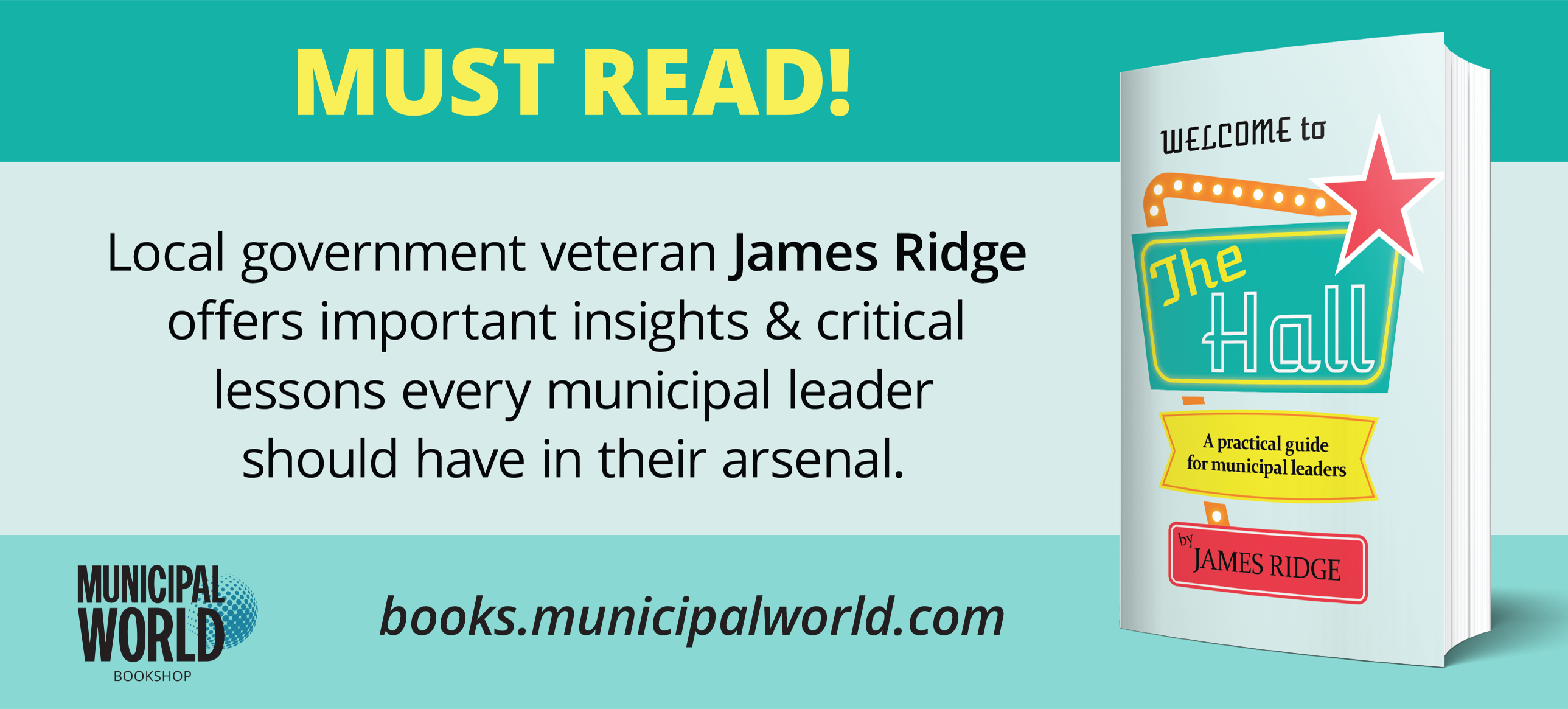Creating safer and brave spaces in the municipal environment

Spaces where everyone can be their authentic selves are crucial for a thriving local democracy
In the recent past, safe spaces have been a controversial topic. These controversies have appeared everywhere as depicted in articles such as “The Coddling of the American Mind” and “Safe Spaces Can Be Dangerous.”
The controversy stems from the fact that the word “safety” is open to interpretation. Simply put, safety is subjective, and it is in the purview of the beholder. Everyone has different ideas about what it means to “feel safe.”
It is also regrettable that the term “safe space” is being politicized. It is being seen as a threat to free speech and free expression. This comes from the misconception that a safe space means everyone around you needs to agree with you. In that context, we end up with one-sided stories. Chimamanda Adichie writes and speaks about the danger of a one-sided story: “If we only hear about a people, place, or situation from one point of view, we risk accepting one experience as the whole truth.”
Changing the Narrative
While the intentions for creating safe spaces are good, they may be misunderstood and misconstrued.
We can all agree that there is no such thing as a 100 percent safe space. Organizations can aim to do all that they can to create safer spaces. It is also critical for them to reach out to all stakeholders and come up with a list that can inform guidelines for a safer and brave space for all.
A brave space is one in which we accept that we will feel uncomfortable and maybe even defensive when exploring issues of bias, injustice, and oppression.
From a local government perspective, we should aim to create a physical, psychological, and emotional safe and brave space were everyone can be their authentic selves. This space should be free of discrimination, criticism, harassment, or any other emotional or physical harm. Politicians should be free to share their diverse and opposing perspectives without fear.
Politically safer and brave spaces should encourage an openness for candid dialogue and free expressions of one’s perspectives that might make others uncomfortable. Regardless of one’s views, there should be respect for an individual’s dignity. It requires everyone to tap into their curiosity. Curiosity will inform the questions that we ask. which expands our knowledge beyond our current interests.
There is a heightened call for diverse voices at the political tables. These calls are faced with the existing narrative that politics is unsafe, inaccessible, inflexible, repulsive, and divisive. There is a need to change the narrative by building an environment that is more responsive to the needs of all the dimensions of diversity that exist, visible and invisible. In this environment, everyone can express themselves and exercise their independent views.
Framework for Creating Safe and Brave spaces
We often talk about good governance being all about roles and responsibilities, principles and conduct expectations. Within this governance structure, is there room to define safer and brave spaces? How would that look like? Should we be looking at this as risk management? Safer and brave spaces should:
- give power to the individual to define what safety means to them;
- provide freedom for ideas to be free falling without thinking of the outcome;
- allow people to challenge and advocate for themselves freely;
- encourage the discussion of ideas not people;
- support the assumption that all viewpoints are respected and equally important;
- allow everyone to lean into discomfort; and
- foster a community of freedom that has no censorship nor coddling.
Once safer and brave spaces are created, efforts are needed to build skills to maintain them. The way forward is defined at both the institutional and personal levels. Everyone must define how they plan to contribute to a safer and brave space.
1. Embrace rumble language
The words we use matter. Words have power. As Brené Brown’s says:
“Rumbling is more than having a real conversation. It is a discussion, conversation, or meeting defined by a commitment to lean into vulnerability, to stay curious and generous, to stick with the messy middle of problem identification and solving, to take a break and circle back, when necessary, to be fearless in owning our parts.”
We need to listen to understand, not to respond. We also need to listen with the same passion with which we want to be heard. The political stage is a perfect place to “rumble.” It encourages all of us to show up with an open heart and mind so we can do the work we are elected to do: serve the community, not our egos.
2. Promote dialogue
Social media has exacerbated the lost art of civil conversation. It is important to create a culture where everyone feels valued, supported, and free to share their viewpoints. We must learn to be comfortable with being uncomfortable. This can be easily done by addressing issues from an objective point of view.
When first-time councillors get their training, they are often told to come to the table with an open mind, not an empty mind. Generative conversations help individuals look at their deeply held assumptions and beliefs with curiosity. This allows them to look at views from an outsider’s perspective instead of tapping into their defensive mode.
3. Celebrate individuality
Individualism embraces human nature, our inherent individuality. After all, morality rests with the individual.
Freedom of choice means freedom to be who you are and not judged or harassed based on political, racial, physical, mental, or ethnical attributes. Organizations need to become a safe environment for people to be themselves without exclusion. They must uphold foundational values that celebrate individuality. This is a moral duty they must fulfill.
4. Tap into emotional intelligence
Emotional intelligence, or emotional quotient (EQ), can be defined as the capacity to be aware of, control, and express one’s emotions, and to handle interpersonal relationships judiciously and empathetically.
Most effective leaders have high emotional intelligence. Elected officials need to have the mental resolve to make decisions on complex issues and the interpersonal skills to engage colleagues and residents or constituents who have opposing views.
5. Build trust
We often talk about political trust or lack of it in terms of citizen’s trust in elected officials. For good governance to happen, there needs to be an aspect of trust among elected officials. Mistrust is also exacerbated by biases that individuals bring to the table. Applying safer and brave spaces framework will help build trust.
With so much polarity around us, we must focus on building and maintaining trust. The building blocks for this are character, competence, and communications, as stated by Stephen Covey. By ensuring all three components are there, people will feel like they can openly communicate what is on their mind, develop their skills, and lean into integrity and honesty.
6. Build resilience skills
Resilience can be loosely defined as the ability to recover from setbacks, adapt well to change, and keep moving forward in the face of adversity. We often tap into resilience to help us overcome crisis situations, and we all know that crisis management is inevitable for politicians.
Diversity in Government Dependent on Safe Spaces
Politically safer spaces are those where diversity is not only valued but viewed as a strength. Such spaces are agile in nature. Seek to not only create, but also cultivate safer and brave spaces. Diversity in government is dependent on it. MW
✯ Municipal World Insider and Executive Members: You might also be interested in Sheila Moore’s article: Employee engagement 2.0: Empathetic leaders bring out the best in employee engagement.
Trish Mandewo is an experienced entrepreneur, board professional, and politician. She was elected to Coquitlam City Council in 2018. She is the Founder and CEO of Synergy Executive & Boards Consulting Group, a recruitment company that recruits and supports the advancement of Black, Indigenous, and visible minority subject matter experts and senior-level executives.
Related resource materials:



